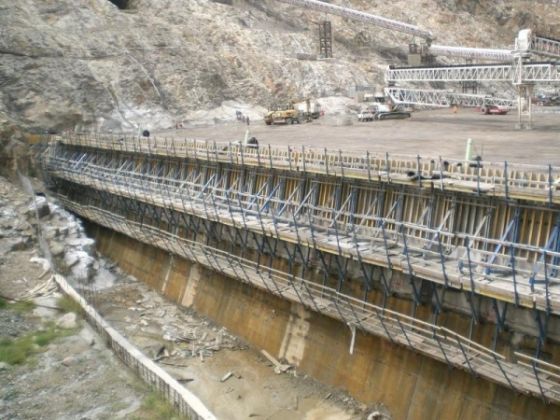Ethiopia, Egypt and Sudan start Nile talks
Ethiopia, Egypt and Sudan are to begin negotiations on recommendations by a technical committee on the Ethiopian Nile dam project, according to a joint statement released by the Egyptian and Ethiopian foreign ministers.
The foreign and water resources ministers of the three countries are due to start talks on the political and technical aspects of sharing the Nile's waters, based on the findings of the technical committee which comprises members of all three countries as well as international experts. The talks relate to the ongoing crisis over water-sharing, arising from Ethiopia's construction of the $4.2bn Grand Renaissance Dam in the Benishangul-Gumuz region, about 40 km east of the Sudan border.
The 6,000-MW dam relies on Ethiopia's plan to divert the course of the Blue Nile, one of the Nile's two main tributaries. The massive project is being financed solely by Ethiopia and is being built by Italian construction firm Salini. The dam remains a source of concern for Egyptians, with fears that the completed project could reduce the volume of Nile water reaching Egypt. Sudan, also downstream, shares Egypt's concerns.
Egypt has long held veto rights over all upstream water projects, following a 1929 colonial-era agreement with Britain. A subsequent deal in 1959 saw Egypt share its Nile water rights with neighbouring Sudan. That agreement granted Egypt 55.5 billion cubic metres of water, and Sudan 18.5, out of an annual total of 74 billion cubic metres of water.
However in mid-June Ethiopia ratified a controversial treaty ensuring its access to Nile water resources, allowing upstream countries to implement irrigation and hydropower projects without seeking Egypt's approval first.
Ethiopia has stressed that the dam will not affect Egypt's share of water, and that the dam will be used mainly for energy-generation purposes, and not irrigation which could reduce the flow of water downstream.
In June Egypt and Ethiopia engaged in heated exchanges following Ethiopia's diversion of the Blue Nile in May in order to construct the new dam, which is currently 20 per cent built. Officials on all sides now agree for the need to move on from a hostile situation and come to a political solution instead.














